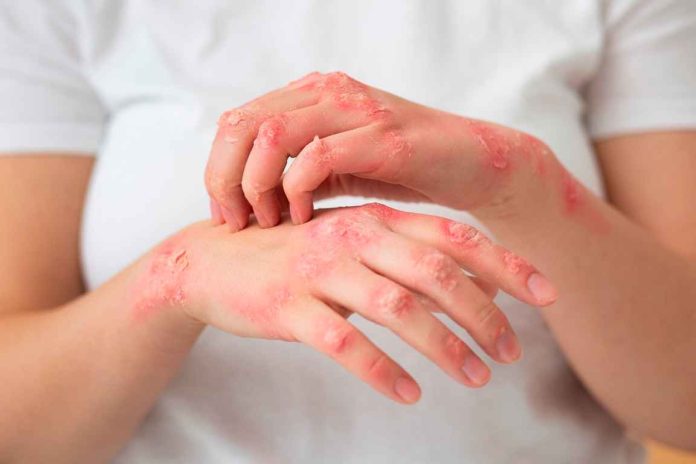Eczema, a common skin condition known for causing red, itchy, and inflamed patches on the skin, affects millions worldwide. It’s not just a mere skin irritation; eczema can impact one’s daily life, self-es koteem, and overall well-being.
For those residing in the bustling city of London, the good news is that there are a multitude of expert dermatologists who can provide advice, care, and tailored treatments.
In this blog post, we will delve deep into what some of London’s dermatology experts suggest for effective eczema management.
Table of Contents
1. Understanding Eczema
Before we jump into treatments, it’s crucial to understand what eczema is and what causes it. Eczema is not a single condition but rather a group of skin conditions causing various symptoms, most commonly itchiness, redness, and dryness.
Eczema’s exact cause remains unknown, but it is believed to result from a combination of genetics, environment, and an overactive immune system. Factors like stress, weather changes, certain fabrics, and even specific soaps can exacerbate the condition.
2. Emollients: The First Line of Defense
One of the primary treatments recommended by nearly every eczema specialist London is the use of emollients. These moisturizing agents help to soothe the skin, reduce dryness, and form a protective barrier.
Emollients are best applied right after bathing to lock in moisture. There are various types, including creams, lotions, and ointments, so it’s essential to find one that suits your skin type.
3. Topical Steroids: For Flare-Ups
During an eczema flare-up, the skin becomes exceptionally inflamed. Here, the use of topical corticosteroids can be beneficial. These creams or ointments contain steroids that help reduce inflammation and itching.
However, due to potential side effects, they should be used as per a dermatologist‘s recommendation and typically only for short durations.
4. Lifestyle Adjustments: Eczema-Friendly Choices
Several lifestyle changes can make a world of difference in managing eczema:
- Diet: Some people find that certain foods exacerbate their eczema. An elimination diet, supervised by a healthcare professional, can help identify potential triggers.
- Clothing: Opting for natural fabrics like cotton and avoiding materials like wool can prevent irritation.
- Skincare: Using mild, fragrance-free products and avoiding long, hot showers can be beneficial.
- Stress management: Techniques such as meditation, yoga, or even regular exercise can help reduce stress-induced flare-ups.
5. Advanced Therapies
For those who don’t find relief with conventional treatments, there are advanced therapies available. Some of these include:
- Phototherapy: This treatment involves exposing the skin to ultraviolet light under controlled conditions. It can be very effective for some people, but it does come with risks, so it’s essential to consult with an eczema specialist in London or elsewhere before starting.
- Biologics: These are advanced medicines that target specific parts of the immune system that contribute to eczema. They’re usually reserved for severe cases.
6. Importance of Regular Dermatology Consultations
Regular consultations with a dermatologist, especially an eczema specialist in London, if that’s where you’re based, can be invaluable.
Not only can they provide tailored advice, but they can also monitor your skin’s condition and adjust treatments as necessary.
Furthermore, as research progresses, new treatments and therapies are developed, and a dermatologist can guide you on the latest and most suitable options.
7. The Psychological Impact of Eczema
It’s essential not to overlook the psychological toll eczema can take. Many people with eczema experience feelings of self-consciousness, anxiety, or even depression.
London-based dermatologists often emphasize the importance of addressing these feelings, either through therapy or support groups.
8. The Role of Environmental Factors
London’s unique environment, characterized by its urban setting, changing weather, and pollution, can play a role in eczema flare-ups. For some, the city’s air pollutants can irritate the skin, leading to heightened sensitivity and exacerbating eczema symptoms.
Moreover, the hard water often found in London areas can strip the skin of its natural oils, making it drier. To counteract these factors, dermatologists often suggest using water softeners, installing air purifiers, and increasing the frequency of moisturizer application.
Being aware of these environmental triggers and adapting to them can significantly improve one’s quality of life in the city.
9. Exploring Holistic and Alternative Therapies
In addition to conventional treatments, many eczema sufferers in London are exploring holistic and alternative therapies. These can range from acupuncture and herbal remedies to homeopathy and ayurvedic treatments.
While not all alternative treatments have scientific backing, many individuals report relief from their symptoms. It’s always essential to consult with an eczema specialist before integrating these therapies, ensuring they complement existing treatments and do not inadvertently cause harm.
Such an integrative approach, combining the best of both traditional and alternative treatments, offers a comprehensive path to managing eczema.
Conclusion
Eczema, though challenging, is manageable. With the right treatments and a proactive approach to care, those affected can lead a comfortable, confident life. And for those based in London, there’s the added advantage of having access to some of the world’s best dermatologists and skincare experts.
Always remember that while over-the-counter treatments can offer relief, there’s no substitute for personalized advice from an eczema specialist. London, with its plethora of expertise, provides an excellent opportunity for those seeking the best care.














